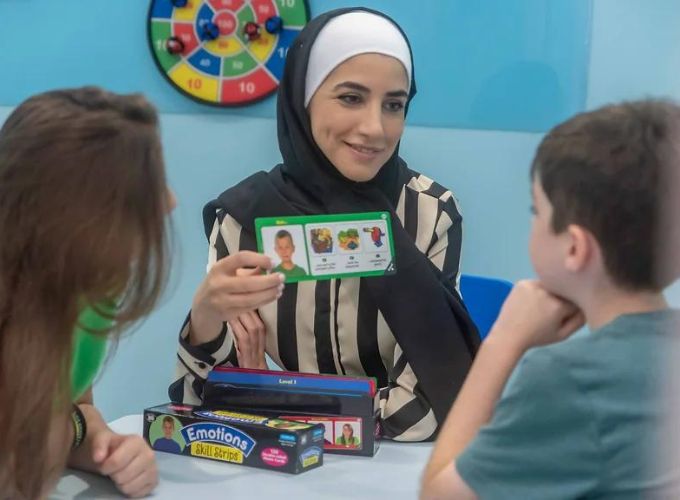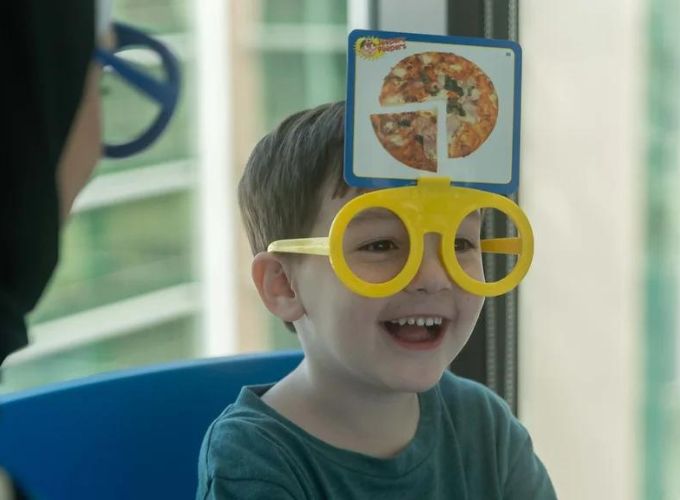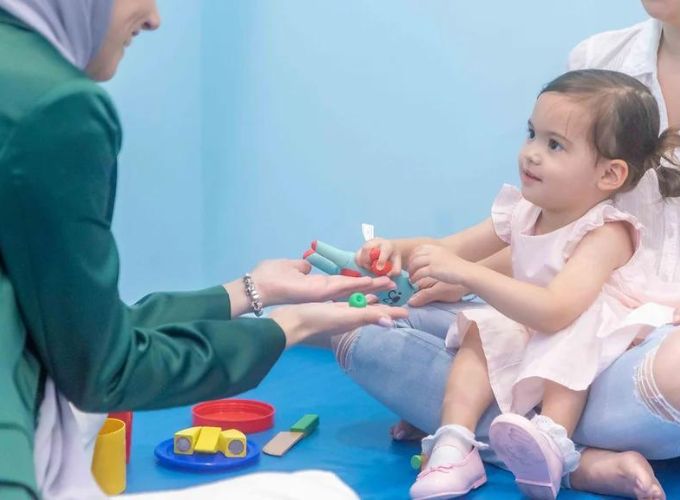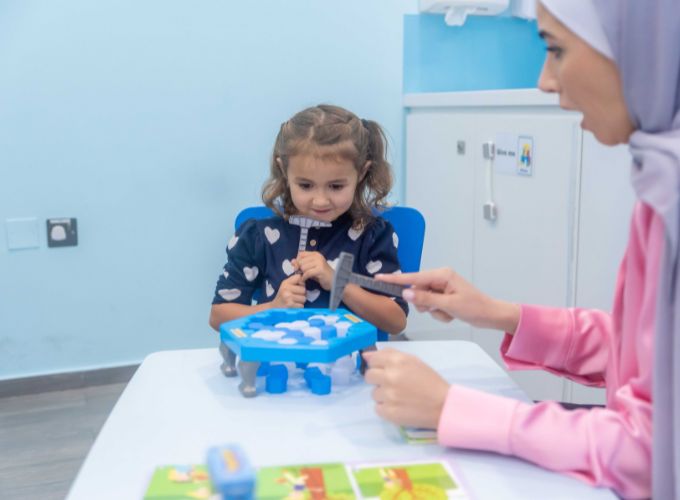Stuttering
We all have moments when our speech isn’t smooth. We might say “uh” or “you know,” or repeat a word. These are called disfluencies. For people who stutter, these disfluencies happen more often and can be different. They might repeat parts of words, stretch out sounds, or have trouble getting words out.
Stuttering is more than just these speech disruptions. It can also involve tension and negative feelings about talking. This might make someone avoid certain words or situations, like talking on the phone.
Stuttering can vary from day to day. Stress or excitement can make it worse, while other times, speech might be more fluent.
Schedule an appointment with one of our Speech Language Therapists today to discover how we can help you.
Signs of Stuttering
Typical disfluencies that are NOT stuttering include:
- Adding sounds or words, like “I um need to go home.”
- Repeating whole words, such as “Cookies cookies and milk.”
- Repeating phrases, like “He is–he is 4 years old.”
- Changing words in a sentence, called revision, like “I had–I lost my tooth.”
- Not finishing a thought, such as “His name is . . . I can’t remember.”
When children are learning new words or sounds, you might notice these typical disfluencies. This is normal.
Disfluencies that indicate stuttering include:
- Part-word repetitions, like “I w-w-w-want a drink.”
- One-syllable word repetitions, such as “Go-go-go away.”
- Prolonged sounds, like “Ssssssssam is nice.”
- Blocks or stops, such as “I want a (pause) cookie.”
You might also see behaviors like head nodding or eye blinking. These can be attempts to stop or avoid stuttering.


Causes of Stuttering
Stuttering usually starts between 2 and 6 years old. Many children go through normal periods of disfluency that last less than 6 months. Stuttering that lasts longer may need treatment.
There is no single cause of stuttering. Possible causes include:
- Family history: Many people who stutter have a family member who also stutters.
- Brain differences: People who stutter may have small differences in how their brain works during speech.
When to See a Professional
If you think your child stutters, it’s important to get help from a speech-language Therapist (SLT) early. Early help can reduce the chances that your child will continue to stutter.
Contact an SLT if:
- Your child’s stuttering has lasted for 6–12 months or more.
- Your child starts to stutter after 3½ years old.
- Your child starts to stutter more often.
- Your child tenses up or struggles when talking.
- Your child avoids talking or says it is too hard to talk.
- There is a family history of stuttering.
Testing for Stuttering
- The types of disfluencies.
- How often the stuttering happens.
- How your child reacts when they stutter.
- How your child tries to “fix” their speech.
The SLT will also check if stuttering affects your child’s play or participation in school. They will test your child’s speech and language, including how they say sounds and words, understand others, and use words to express thoughts.
Treatment for Stuttering
There are different ways to help with stuttering. A treatment team usually includes you, your child, other family members, and your child’s teacher. Treatment depends on:
- How much your child stutters.
- How your child reacts to stuttering.
- How stuttering impacts daily life.
- How others react to your child’s stuttering.
- Your child’s age.
For preschool children, treatment may include direct or indirect strategies. Direct strategies help your child change how they speak. Indirect strategies make it easier for your child to talk, like slowing down your own speech and asking fewer questions. You play a crucial role in your child’s treatment. The SLT can guide you on how to respond when your child stutters and improve their comfort with talking.
For older children and adults, treatment focuses on managing stuttering. An SLT will help them feel less tense and speak more freely in various settings. They will also help them face speaking situations that cause fear or anxiety, like talking on the phone or ordering food.

Understanding and addressing stuttering early can make a big difference.
If you are concerned or have questions, feel free to reach out to one of our SLTs at Perfect Balance.
Early intervention and support can help your child develop confidence and improve their communication skills.
Request an appointment to improve speech and communication skills.
Our Speech Therapy center in Abu Dhabi can help enhance language abilities, articulation,
and social communication, empowering you to communicate confidently and effectively!
Schedule a consultation with Perfect Balance Speech & Language Therapy today, and
take the first step on your child’s journey to better communication!










